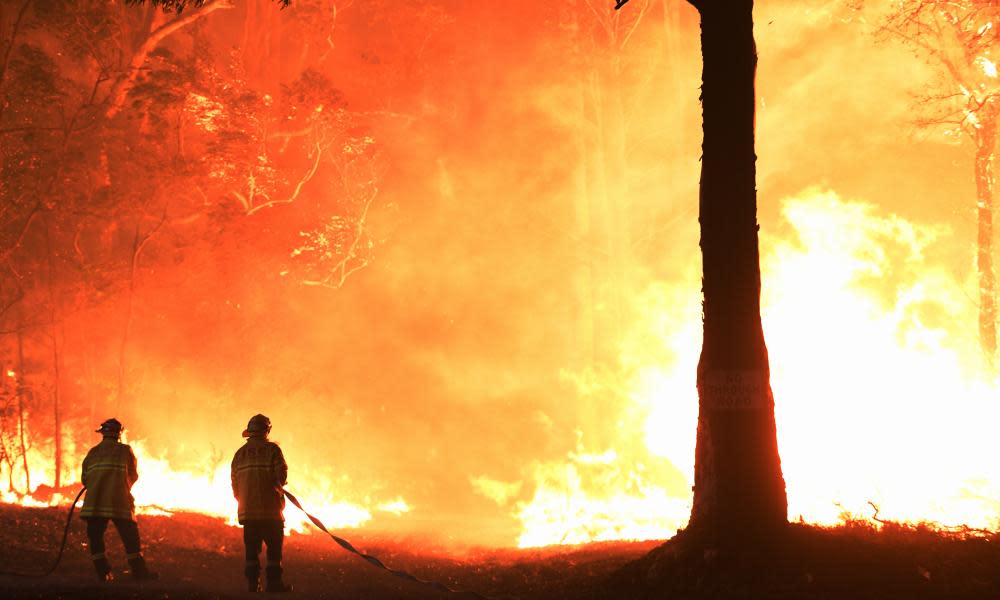Australia’s ‘failing’ environmental laws will fuel further public health crises, Nobel laureate warns

Leading health professionals, including a Nobel laureate and a former Australian of the Year, say the government must put human health “front and centre” in a new generation of environment laws in the aftermath of the Covid-19 and bushfire crises.
The Nobel prize-winning immunologist Peter Doherty and the epidemiologist and former Australian of the Year Fiona Stanley are among 180 professionals who have warned the government that Australia’s “failing” environmental laws will fuel further public health crises.
In a letter to the environment minister, Sussan Ley, they’ve called on the government to use the once-in-a-decade review of Australia’s Environment Protection and Biodiversity Act to strengthen environmental protections and acknowledge the importance of a healthy environment to human health.
Related: Snowy Hydro 2.0 approved by NSW government as part of Covid-19 economic stimulus
“We note that the EPBC Act review is occurring during a period where Australia has experienced back-to-back crises of extraordinary scale in the 2019-2020 ‘Black Summer’ bushfires and now the Covid-19 pandemic,” the letter, organised by Doctors for the Environment Australia and the Climate and Health Alliance, states.
“These events highlight the fundamental interdependence between humans and the natural world and the consequences for human health when this is ignored.”
The businessman Graeme Samuel is chairing the independent review and is due to hand down a draft report in June. The final report is due in October, however, the government has indicated it is prepared to introduce changes to the act before that deadline.
Environmental organisations have long called for an overhaul of the act, highlighting its failure to stem Australia’s high rate of extinction.
Businesses and the government have spoken of the need to cut environmental bureaucracy – so-called “green tape” – in response to the Covid-19 pandemic.
Others, however, have told the Morrison government Australia’s prosperity depends on eradicating greenhouse gas emissions.
Stanley said the prospect of weakened environmental protections was “scary” and “the most devastating thing we could do for the health and wellbeing of our people”.
“The danger of the pandemic is they’ll slip this relaxing of environmental and other laws in without us noticing. It’s unacceptable,” she said.
“The people pushing for that are the people who are going to make the profits.”
The letter to Ley instead calls for an “entirely new generation of environmental law” with more robust protections.
As part of that, the health professionals state human health must be included in the act and public health professionals should sit on institutions responsible for administering environmental law.
The letter says the catastrophic bushfire season had not only caused unprecedented ecological devastation and loss of wildlife, it had also led to loss of human life, physical injuries, respiratory problems, and displacement of people. It says the mental health effects of the disaster will be long-lasting.
It says animal welfare and destruction of habitat were at the heart of the Covid-19 crisis and protection of nature was necessary to “prevent further and potentially even more deadly pandemics”.
Stanley said Australian environment and climate policy was late in acknowledging the importance of human health.
She said healthy ecosystems allowed children to grow up physically and mentally healthier and would reduce costs associated with health care.
“Planetary health leads to our health. In the end, it leads to better economies and more cost effective ways of providing energy,” she said.
“We should be talking about investment in society, investment in environment and biodiversity. It’s an investment, not a cost. The cost comes from not doing it.”
Stanley said environmental and climate policy in Australia had suffered for two decades due to the denigration of science
She said the fact Australia was slowly starting to ease its Covid-19 restrictions showed what was possible when scientists were listened to.
“At least everybody now knows what epidemiologists are,” Stanley said.
“Because they’ve listened to the science all through this pandemic, our hope is they might listen to the science with regards to the letter we’ve just sent.”
A spokesman for Ley said the letter had been received and would be considered by Samuel as part of the EPBC Act review.

 Yahoo News
Yahoo News 
